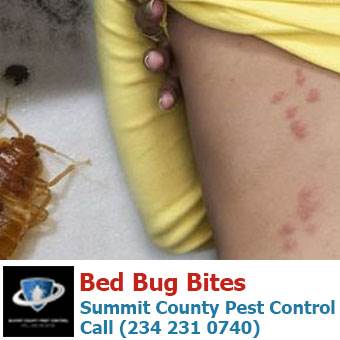Bed Bug Exterminator Houston Treatment: Specialized Methods for Eradication
Bed Bug Exterminator Houston Treatment: Specialized Methods for Eradication
Blog Article
Reliable Parasite Control Measures to Safeguard Your Yard and Plants
In the world of gardening, the harmony of a well-tended garden can commonly be interrupted by unwanted parasites that endanger the wellness and vitality of plants. As garden enthusiasts make every effort to keep a flourishing exterior space, the difficulty of parasite control becomes a crucial element of their horticultural undertakings. Applying effective insect control measures not only safeguards the garden's aesthetic charm yet likewise plays a crucial function in preserving the plants' wellness. By exploring a variety of methods that encompass natural repellents, advantageous insects, buddy growing, do it yourself options, and environmentally-friendly chemicals, gardeners can browse the elaborate world of parasite monitoring with precision and treatment.
Natural Bug Repellents

Another efficient all-natural parasite repellent is diatomaceous planet, a fine-grained material made from fossilized aquatic organisms. Diatomaceous earth works by literally damaging pests with its unpleasant texture, making it an outstanding choice for controlling parasites like slugs, beetles, and caterpillars. In addition, growing friend plants like marigolds, lavender, or basil can assist push back bugs as a result of their strong scents or natural chemical substances.
Beneficial Insects for Parasite Control

One more valuable bug is the parasitical wasp, which lays its eggs inside parasite insects, ultimately killing them. Ground beetles are excellent for regulating caterpillars, snails, and slugs. Hoverflies, frequently incorrect for bees as a result of their comparable look, eat aphids, thrips, and caterpillars.
To draw in beneficial pests to your yard, you can plant a varied variety of blooming plants, such as dill, fennel, and yarrow, which offer nectar and plant pollen for adult bugs. Furthermore, avoid using broad-spectrum chemicals that can hurt both harmful and useful bugs. By developing a welcoming setting for these advantageous pests, you can lower the requirement for chemical pesticides and advertise a healthier, more well balanced yard community.
Buddy Growing Methods
When aiming to boost the efficiency of beneficial bugs in your garden for natural insect control, thinking about companion planting strategies can additionally optimize the environment equilibrium. Buddy growing involves tactically placing specific plants following to each other to optimize their mutual benefits, such as preventing pests, attracting useful pests, or improving vitamins and mineral uptake - bed bug exterminator houston near me. One popular instance is growing marigolds alongside tomatoes to repel nematodes and other unsafe insects while also attracting pollinators
Growing catch plants like nasturtiums can draw away bugs away from your major plants, serving as sacrificial plants that protect your valuable fruit and vegetables. By implementing companion planting techniques, you can develop a diverse and unified garden community that normally controls parasites while promoting plant health and wellness and productivity.
DIY Insect Control Solutions
To effectively handle pests in your yard, applying do-it-yourself insect control solutions can be an affordable and environmentally friendly strategy. One usual DIY pest control service is creating homemade insecticidal soaps by blending mild soap with water to regulate soft-bodied bugs like aphids, termites, and whiteflies. Additionally, presenting useful pests such as ladybugs, lacewings, and aggressive wasps can assist normally control pest populations in your yard. Establishing up bed bug exterminator houston near me physical barriers like row covers or netting can likewise protect against bugs like caterpillars from damaging your plants.
Friend growing particular natural herbs and blossoms like marigolds, basil, and lavender can assist push back bugs and draw in beneficial insects. By incorporating these Do it yourself parasite control remedies into your gardening routine, you can safeguard your garden and plants without counting on extreme chemicals.
Environmentally-Friendly Pesticides

An additional effective choice is diatomaceous planet, a natural compound made from fossilized marine microorganisms, which can be sprayed around plants to control slugs, snails, and other crawling pests. Additionally, insecticidal soaps and oils originated from plant-based sources are valuable for controlling soft-bodied insects like aphids, mites, and whiteflies.
Verdict
Finally, reliable pest control procedures such as all-natural repellents, useful pests, friend planting methods, do it yourself services, and environmentally-friendly pesticides are important for shielding your garden and plants. By carrying out these approaches, you can stop damages triggered by pests and keep a healthy and balanced and flourishing garden environment. It is very important to consider the long-term influence of using chemicals and select more lasting and environment-friendly alternatives to ensure the wellness and well-being of your plants and the setting.
Report this page